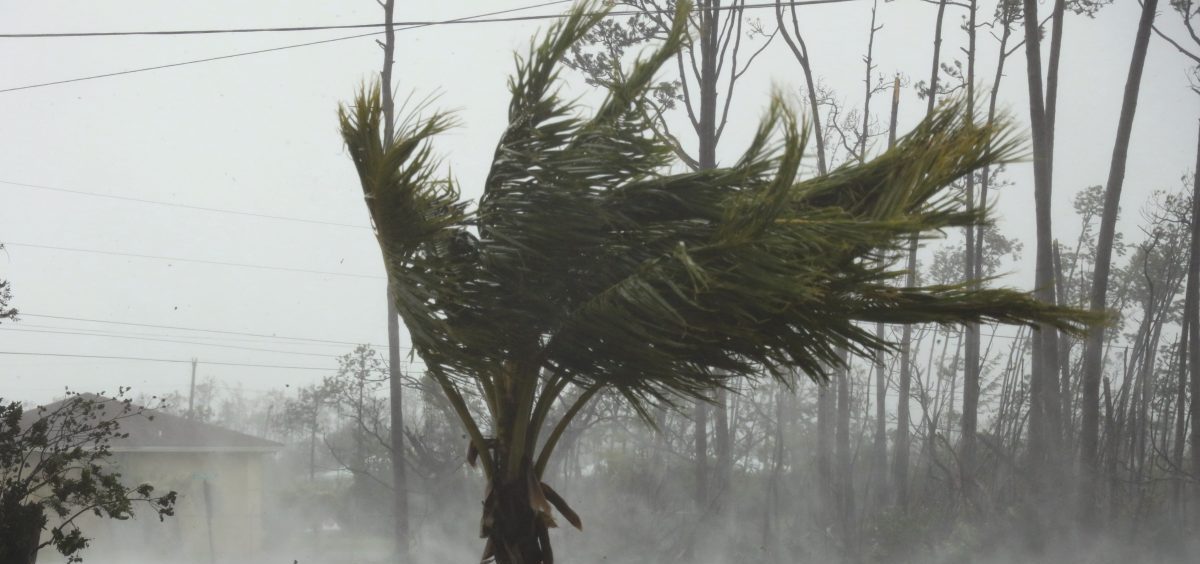News

Dorian Weakens To A Category 2, But Is ‘Growing In Size’
By: Brakkton Booker | NPR
Posted on:
Hurricane Dorian, the massive and deadly storm, has been downgraded to a Category 2 after spending more than a day thrashing Grand Bahama Island. The storm is “finally moving northwestward” according to the latest advisory from the National Hurricane Center.
The NHC also says the storm is “growing in size.”
Dorian is roughly 105 miles off the shore of Fort Pierce, Florida, and has maximum sustained winds of 110 miles per hour, according the NHC.
The storm spent most of Monday and into the morning Tuesday essentially stalled out over the Bahamas, relentlessly pounding the islands with high winds and catastrophic flooding.
Hurricane effects will likely be felt in parts of Florida this evening. Georgia, the Carolinas, and Virginia could feel the effects of Dorian in the coming days.
A hurricane warning remains in effect for Grand Bahama and Abaco Islands, NHC says. It’s also forecasting Dorian will “move dangerously close” to Florida’s east coast later Tuesday through Wednesday evening.
Much of Florida’s Atlantic coast from Jupiter Inlet near West Palm Beach to as far north to Ponte Vedra Beach near Jacksonville are under a hurricane warning, according to the latest advisory.
In South Carolina, Edisto Beach north to the South Santee River are also under a hurricane warning. NHC says Dorian will move “very near” the Georgia and South Carolina coasts Wednesday night “and near or over” North Carolina later in the week.
NHC says the storm is picking up speed, ever so slightly, now moving toward the northwest near 2 miles per hour “and a slightly faster motion” is expected later today and tonight, with a turn north forecast by Wednesday evening.
Though the storm has lost some of its initial punch it — it made landfall Sunday as a Category 5 walloping the Abaco Islands with wind gusts of up to 220 miles per hour– the storm remains plenty dangerous.
Hubert Minnis, the Bahamas Prime Minister, announced Monday evening that at least five people died in the storm. Some fear the death toll could rise given the storm’s southern eyewall “continues to pound Grand Bahama Island” according to the NHC advisory.
Darren Henfield, the Bahamas Minister of Foreign Affairs told reporters Monday conditions on the islands remain treacherous.
“From all accounts we have received catastrophic damage. It is not safe to go outdoors. Power lines are down, lamp posts are down, trees are across the street,” Henfield said.
NPR’s Greg Allen, reporting on the storm from West Palm Beach, Fla., told NPR’s Morning Edition Tuesday:
“On Abaco, the U.S. Coast Guard arrived yesterday and has been using helicopters to airlift injured people to safety. But the Bahamian officials haven’t really been able to get out much in Abaco yet” Allen said.
He adds that no aid or accurate surveys of the extent of the damage can happen until conditions improve there, which may not come until Wednesday.
The Bahamas Press, an online publication posted video of and stories about Abaco Marsh Harbour being “completely destroyed” by Dorian. In a separate post, Bahamas Press showed images from Abaco that it says are of people who were killed by the storm being loaded on a truck.
The publication also says it believes the death count is higher than the one officials are currently giving.
“PM Hubert Minnis claims the RBPF (Royal Bahamas Police Force) has confirmed five deaths, however, sources on the ground tell us bodies are being collected all across Abaco this afternoon,” the publication writes.
According to a Monday advisory by the International Red Cross, Dorian caused “extensive damage” across both Abaco and Grand Bahama. Early estimates by the humanitarian aid organization say as many as “13,000 houses may have been severely damaged or destroyed.”
9(MDI4ODU1ODA1MDE0ODA3MTMyMDY2MTJiNQ000))

